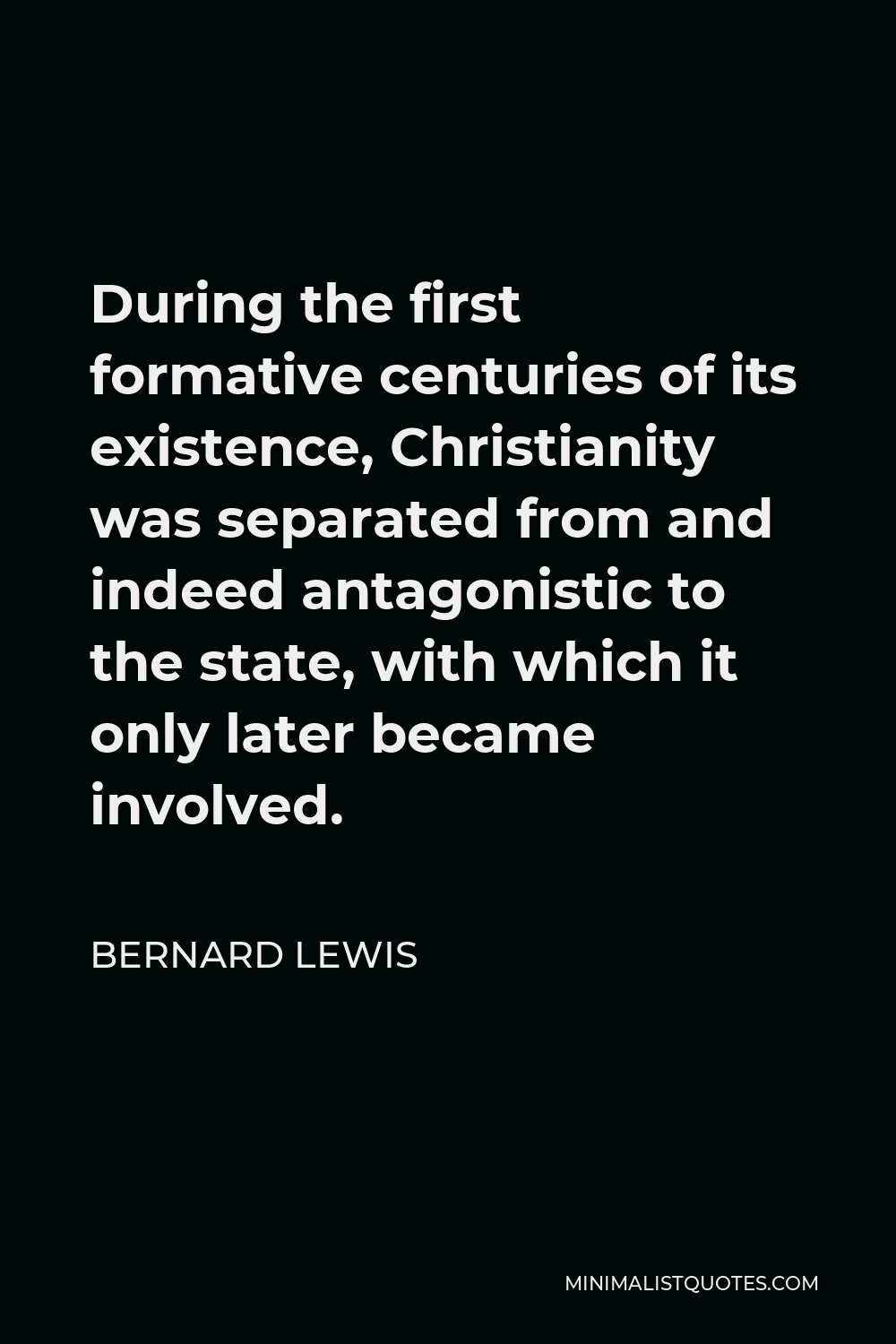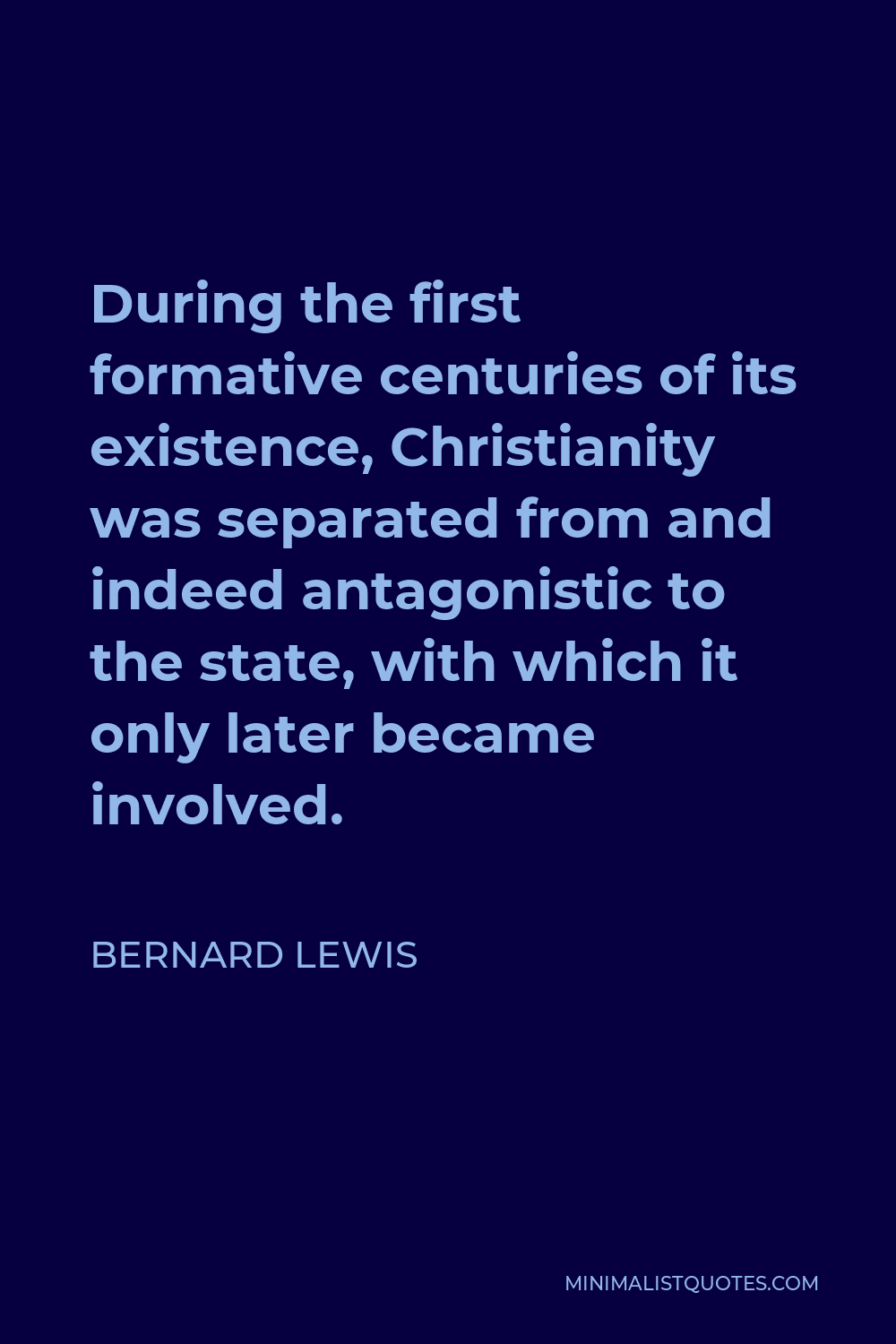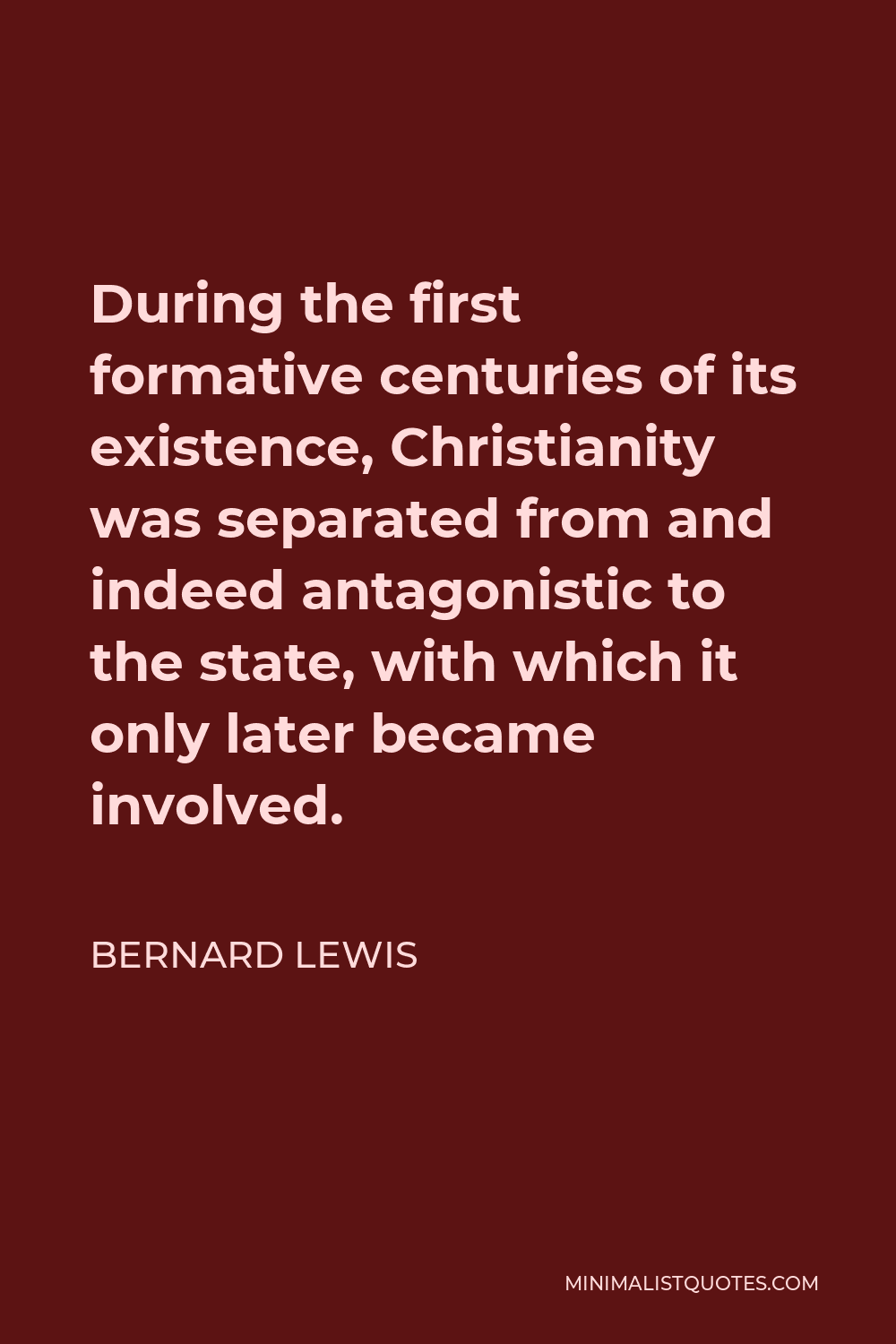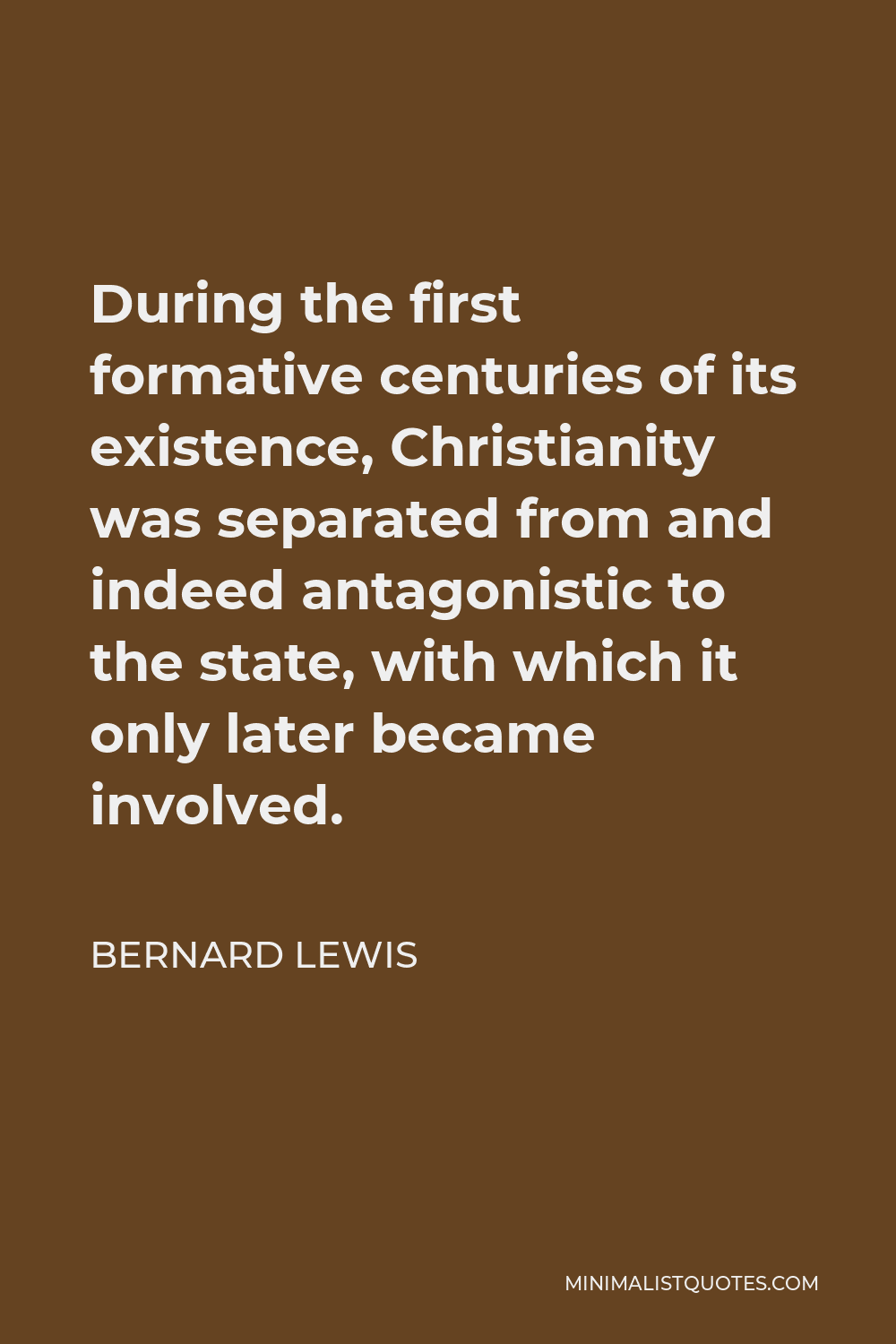I think confronted with the modern world or with the rest of the world, I think people are becoming aware that the Western and Islamic civilizations have more in common than apart.
BERNARD LEWISDuring the first formative centuries of its existence, Christianity was separated from and indeed antagonistic to the state, with which it only later became involved.
More Bernard Lewis Quotes
-





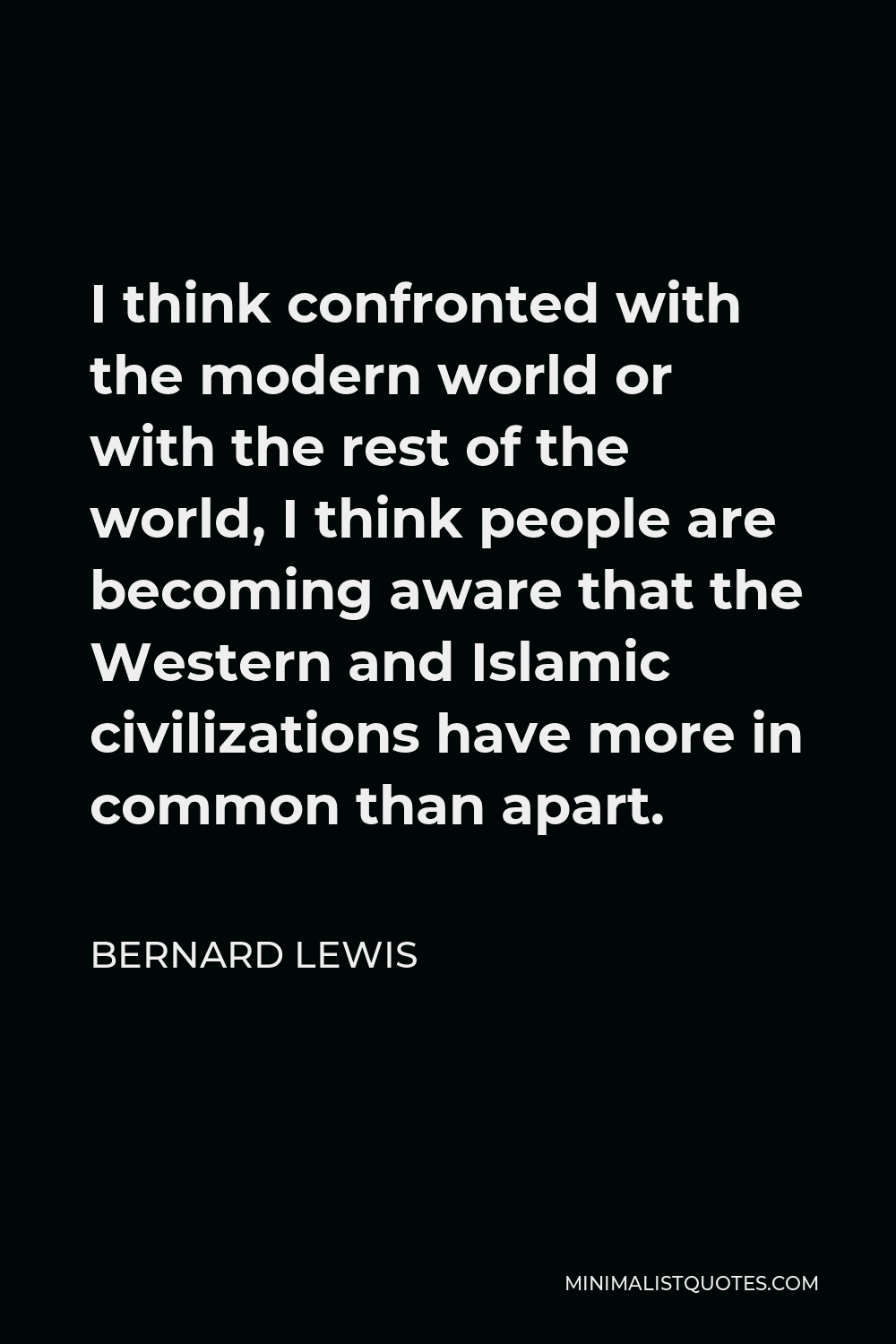
-





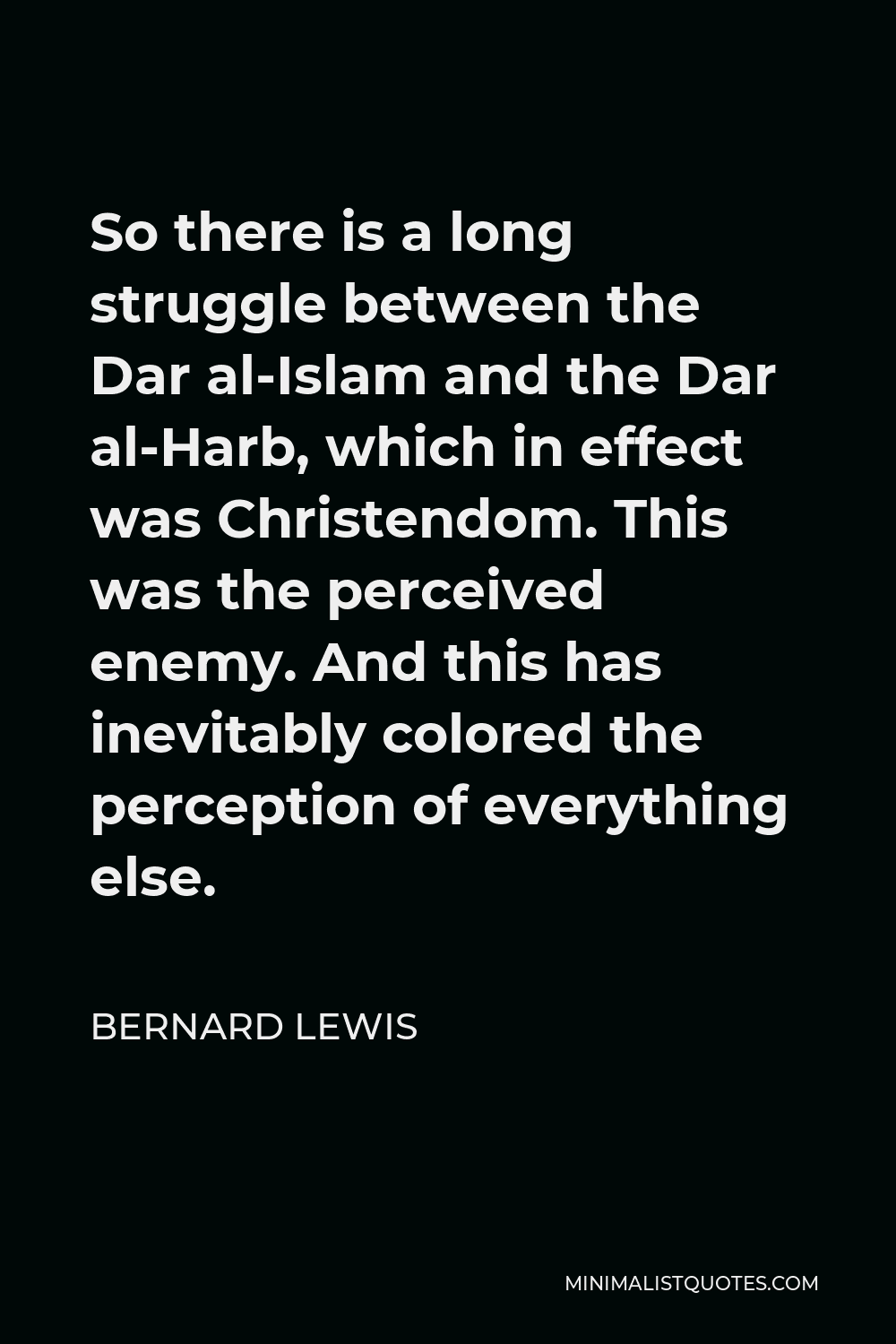
So there is a long struggle between the Dar al-Islam and the Dar al-Harb, which in effect was Christendom. This was the perceived enemy. And this has inevitably colored the perception of everything else.
BERNARD LEWIS -





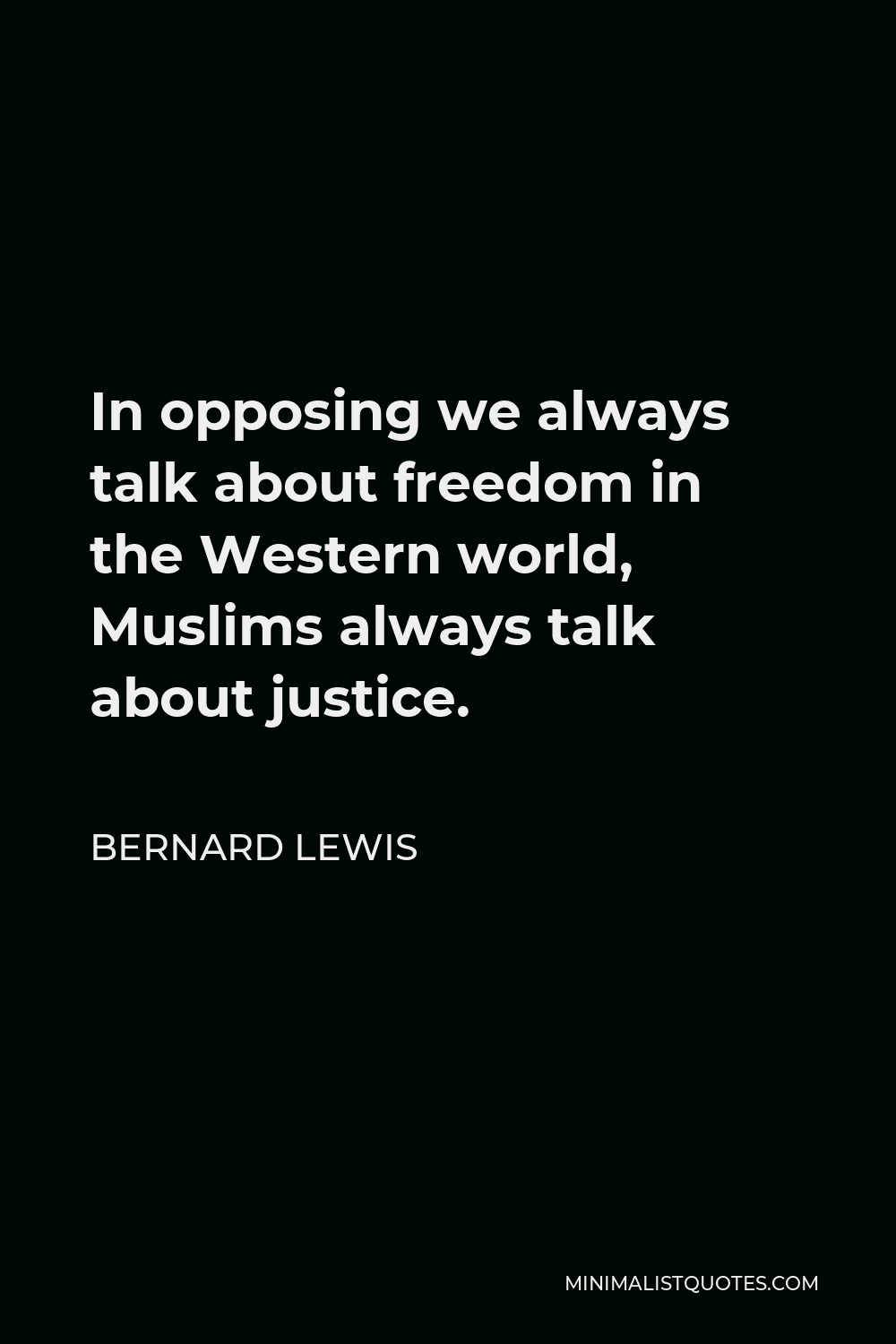
In opposing we always talk about freedom in the Western world, Muslims always talk about justice.
BERNARD LEWIS -





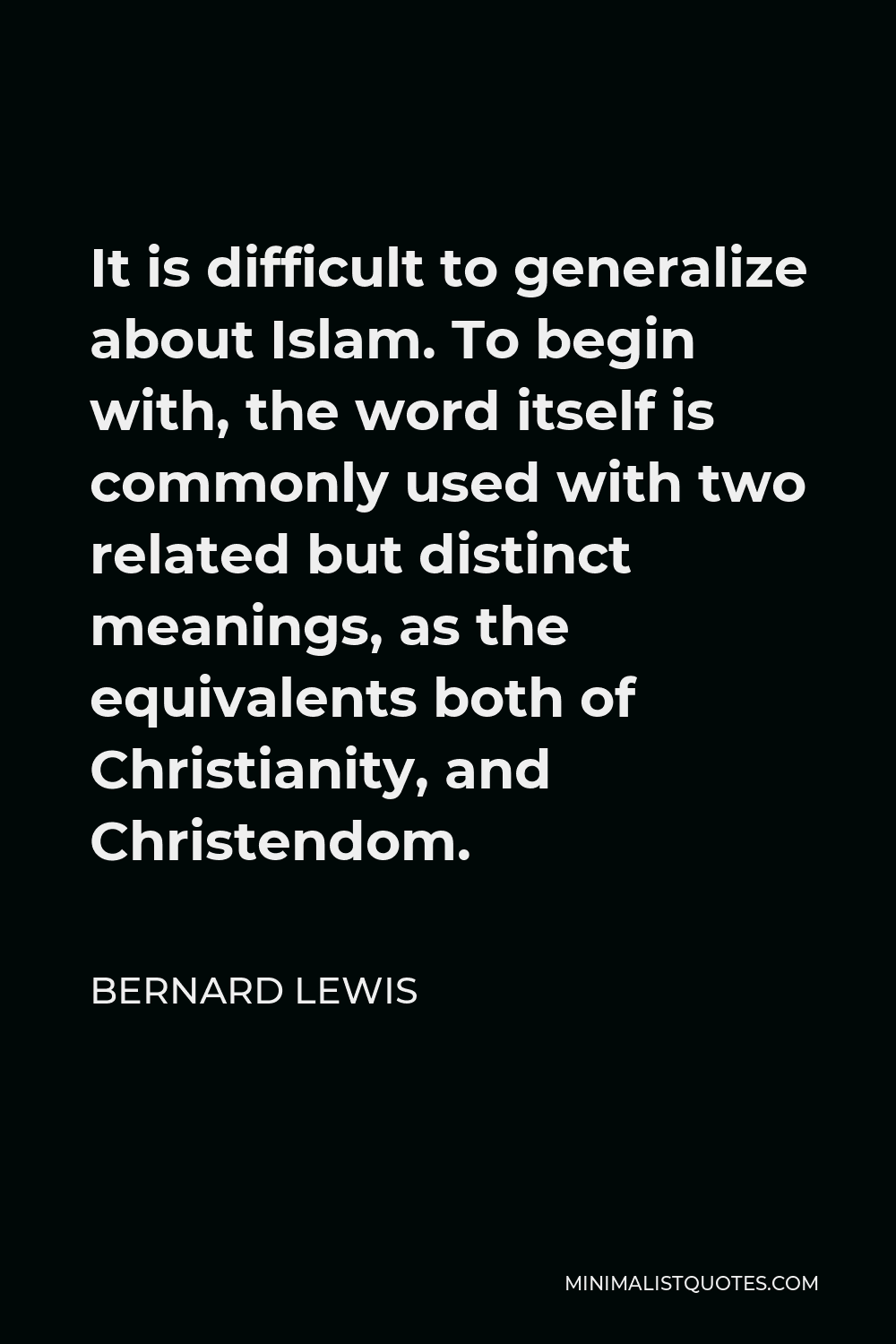
It is difficult to generalize about Islam. To begin with, the word itself is commonly used with two related but distinct meanings, as the equivalents both of Christianity, and Christendom.
BERNARD LEWIS -





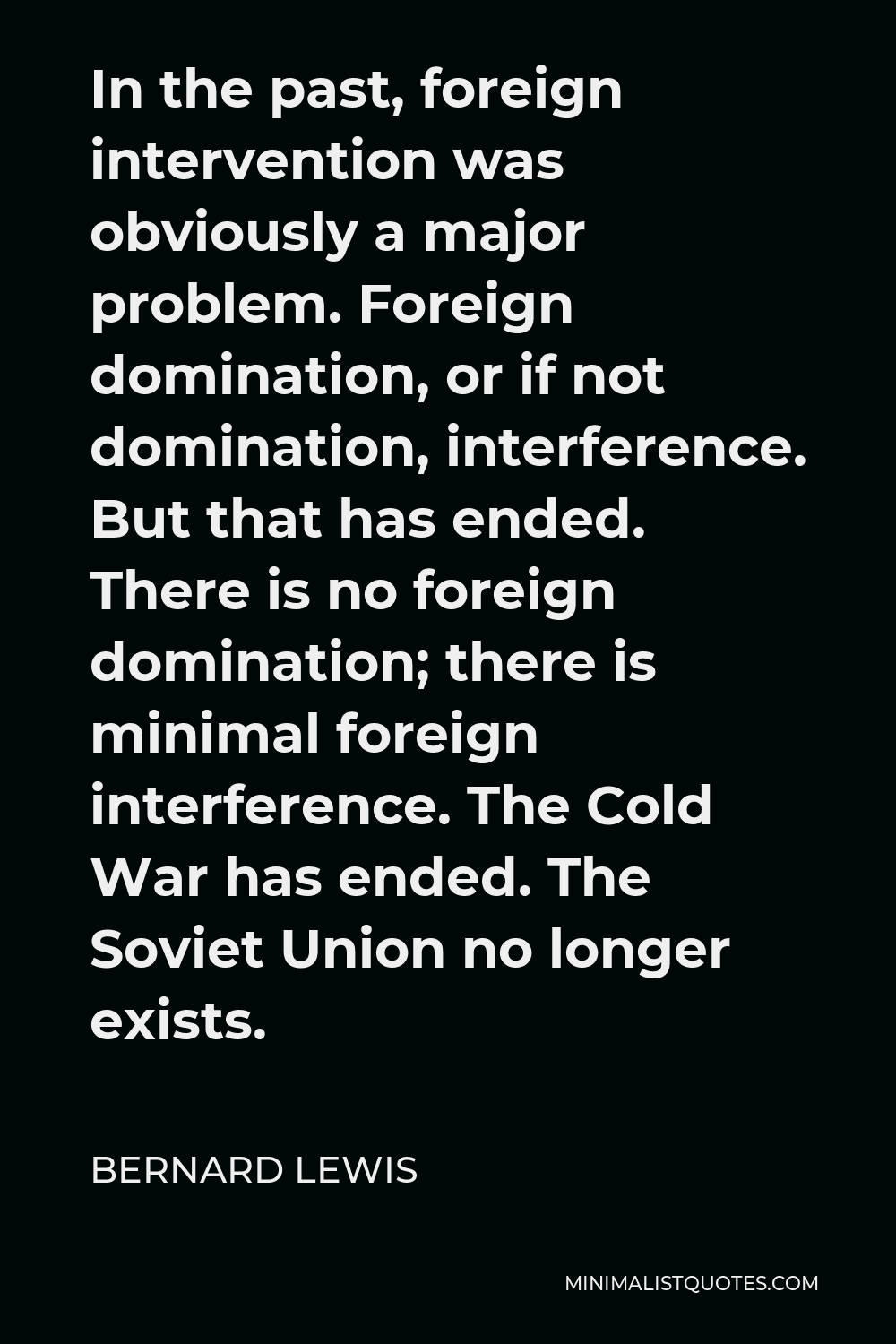
In the past, foreign intervention was obviously a major problem. Foreign domination, or if not domination, interference. But that has ended. There is no foreign domination; there is minimal foreign interference. The Cold War has ended. The Soviet Union no longer exists.
BERNARD LEWIS -





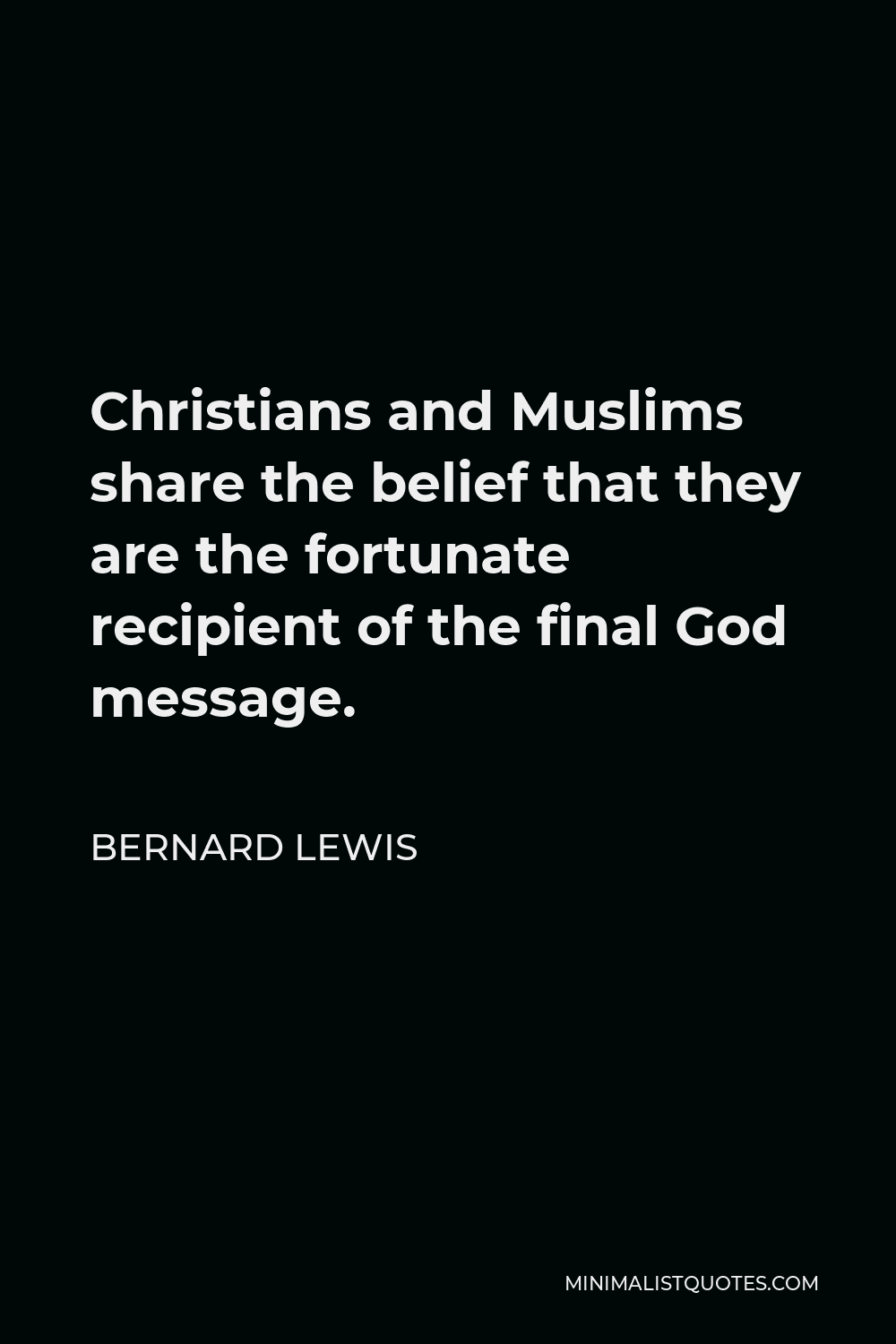
Christians and Muslims share the belief that they are the fortunate recipient of the final God message.
BERNARD LEWIS -





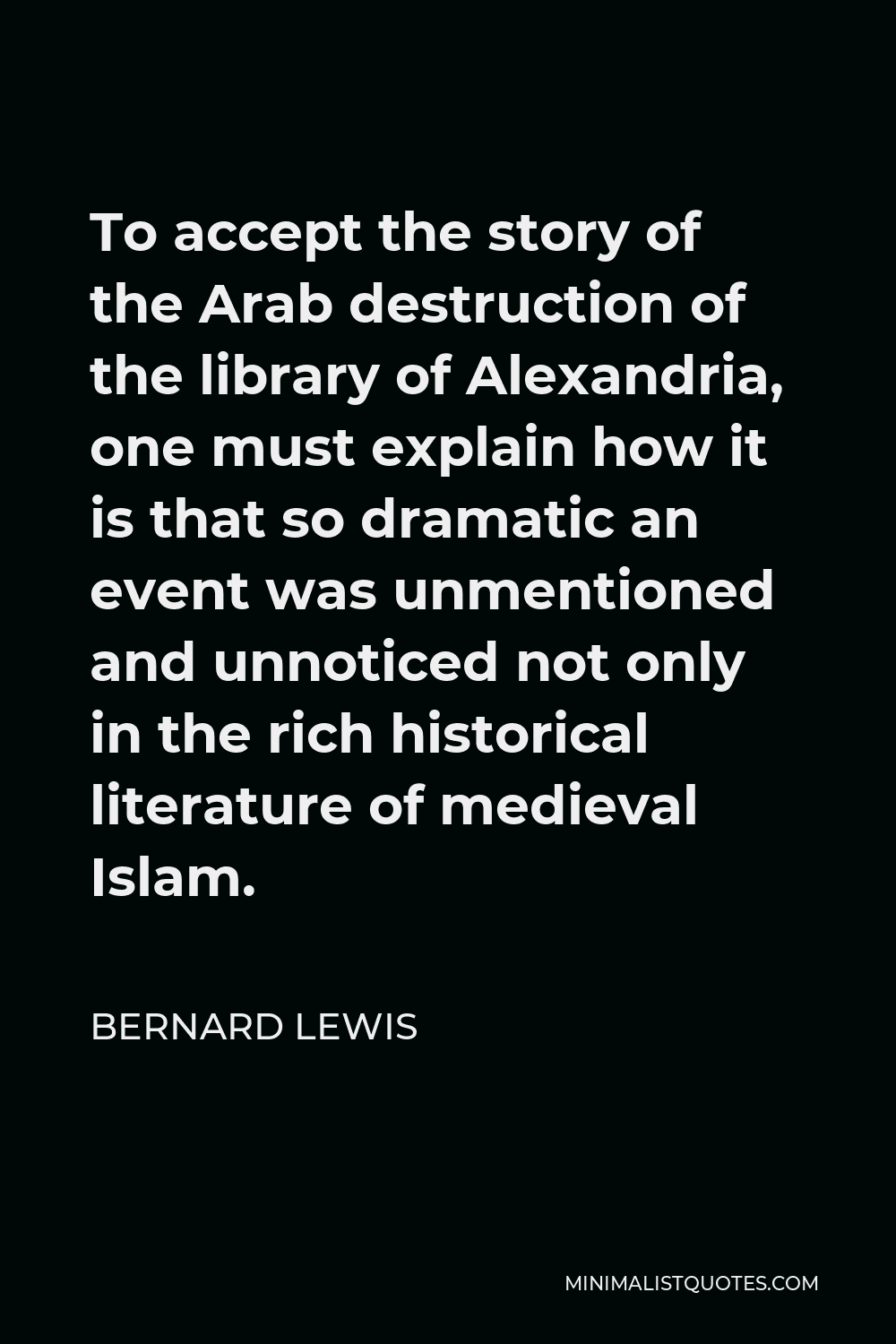
To accept the story of the Arab destruction of the library of Alexandria, one must explain how it is that so dramatic an event was unmentioned and unnoticed not only in the rich historical literature of medieval Islam.
BERNARD LEWIS -





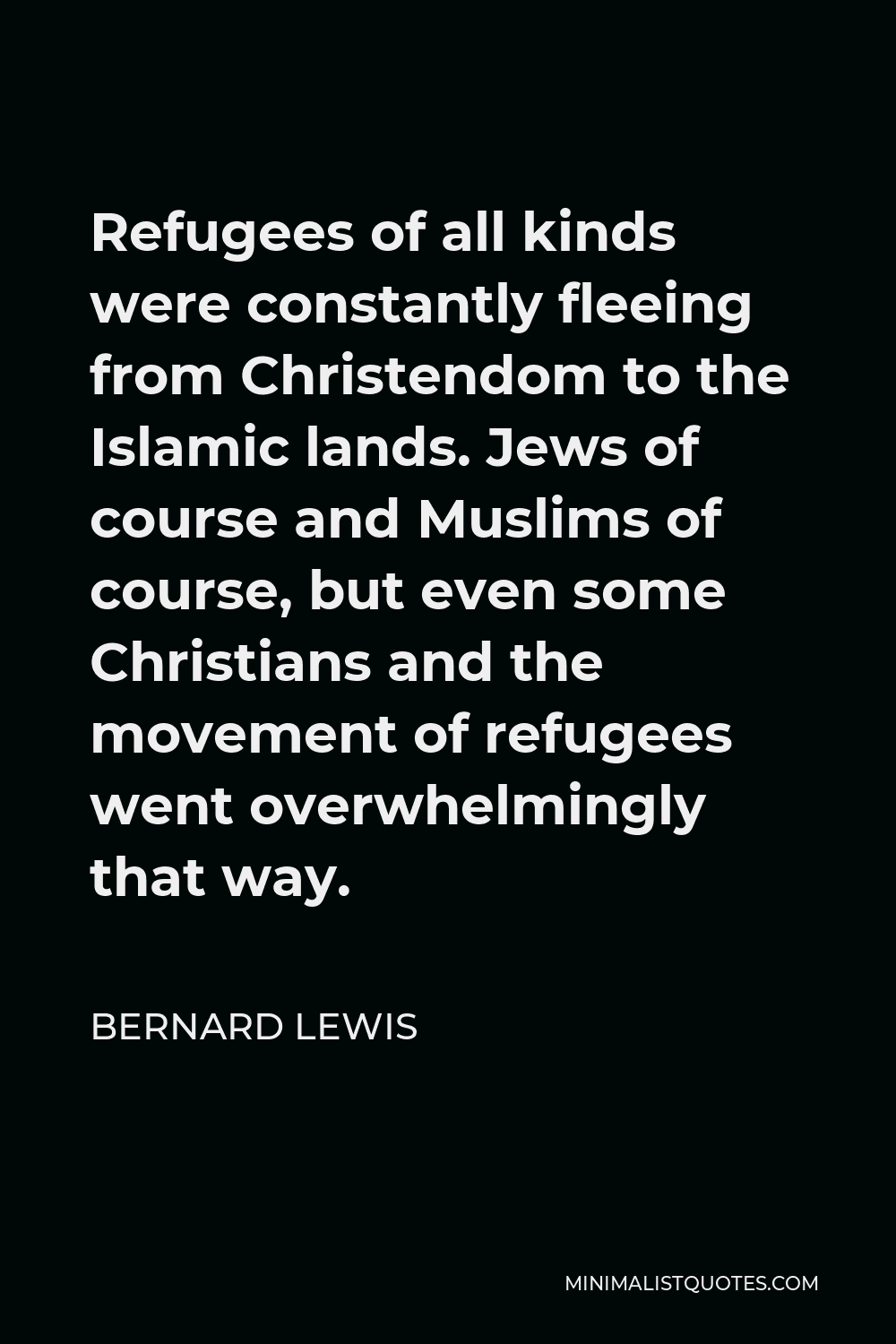
Refugees of all kinds were constantly fleeing from Christendom to the Islamic lands. Jews of course and Muslims of course, but even some Christians and the movement of refugees went overwhelmingly that way.
BERNARD LEWIS -





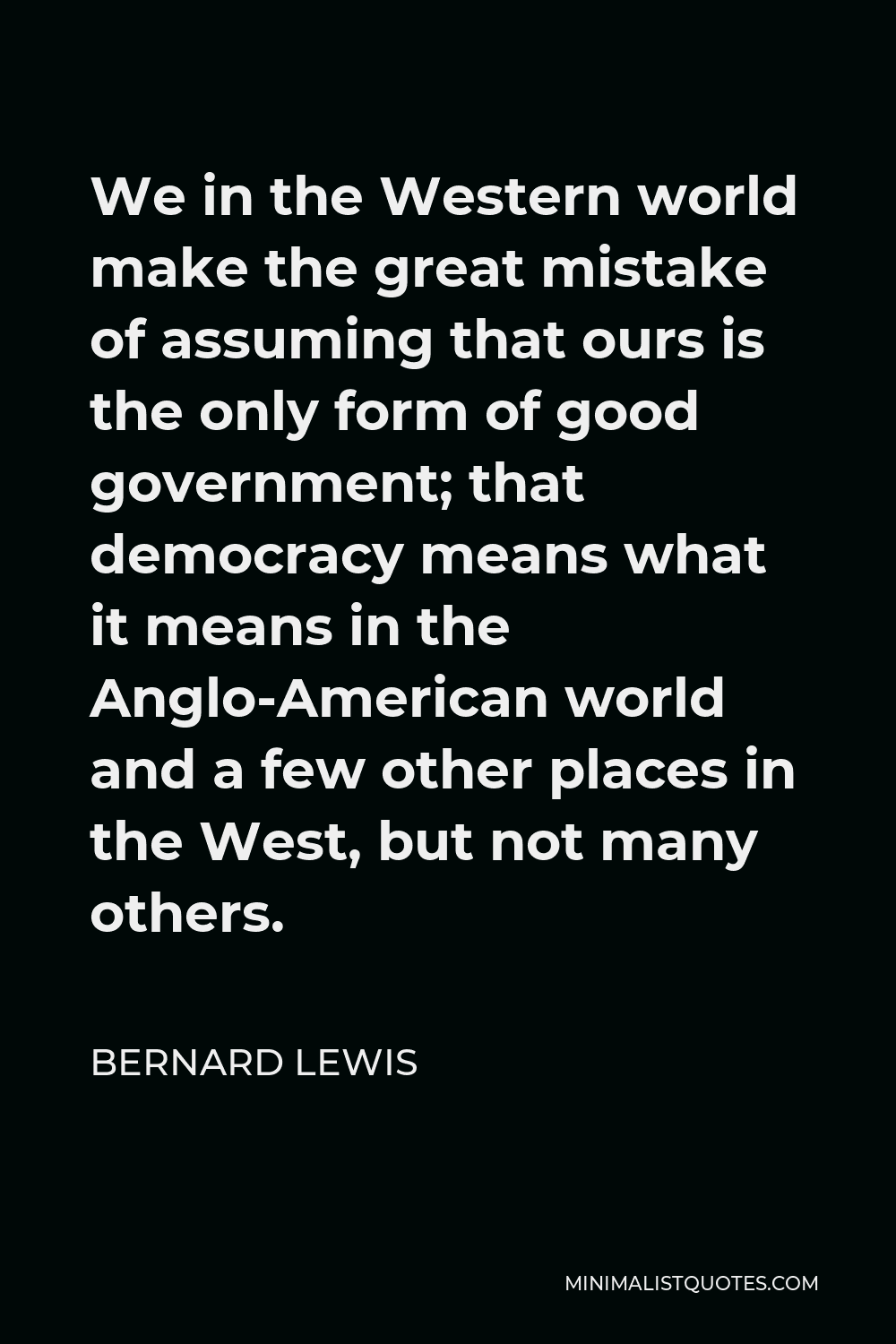
We in the Western world make the great mistake of assuming that ours is the only form of good government; that democracy means what it means in the Anglo-American world and a few other places in the West, but not many others.
BERNARD LEWIS -





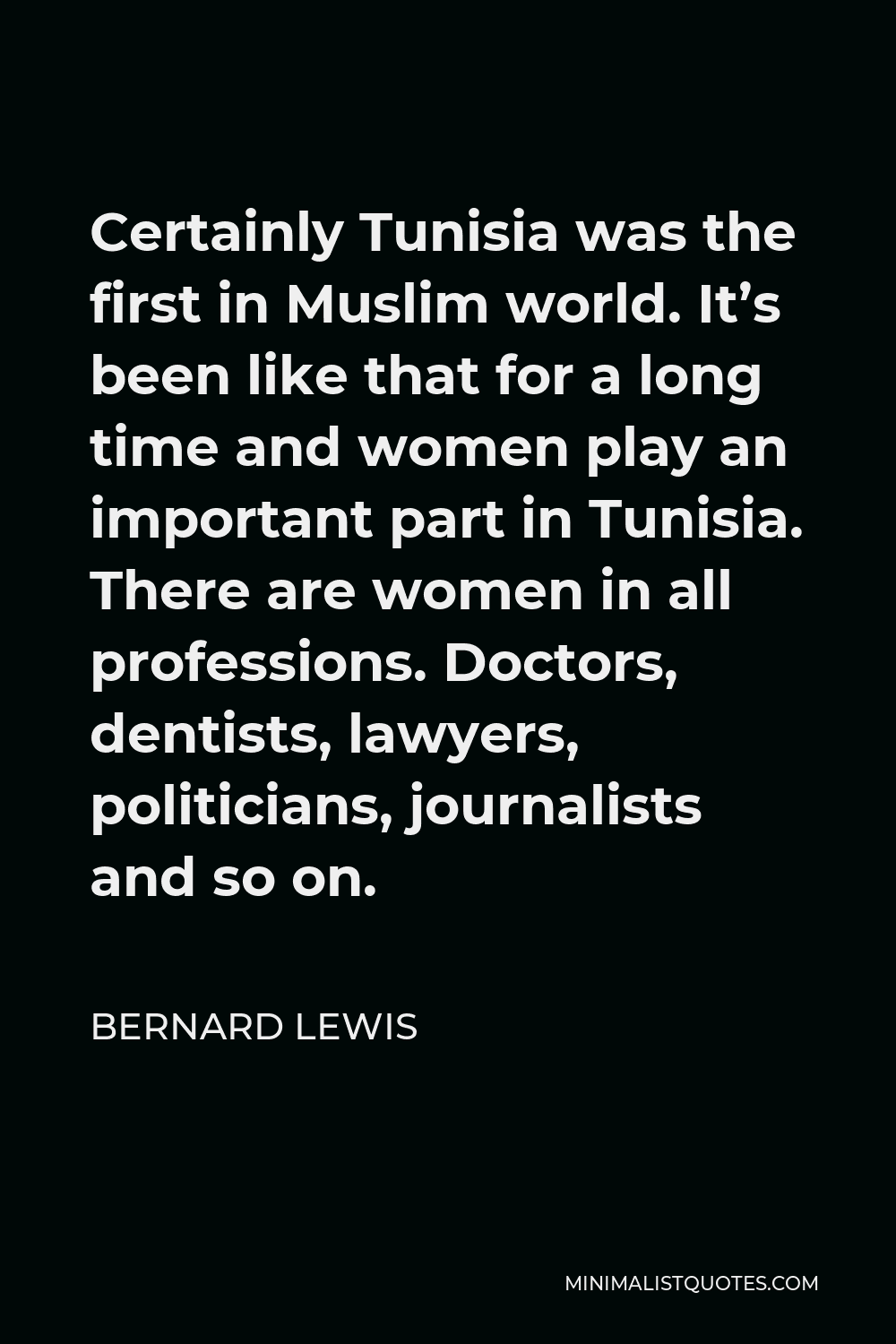
Certainly Tunisia was the first in Muslim world. It’s been like that for a long time and women play an important part in Tunisia. There are women in all professions. Doctors, dentists, lawyers, politicians, journalists and so on.
BERNARD LEWIS -





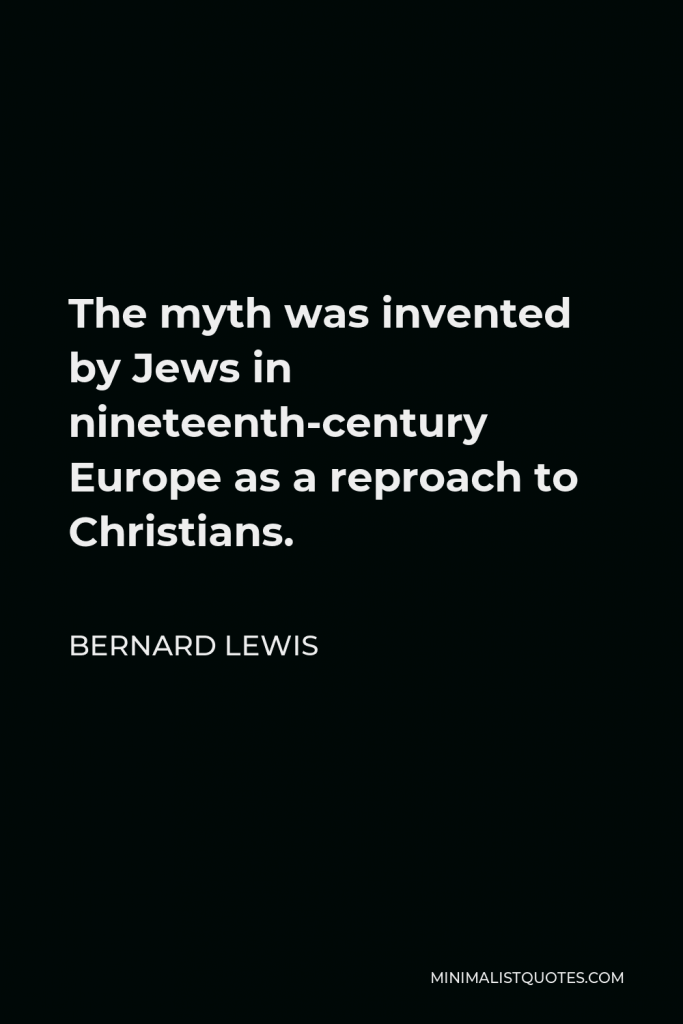

The myth was invented by Jews in nineteenth-century Europe as a reproach to Christians.
BERNARD LEWIS -





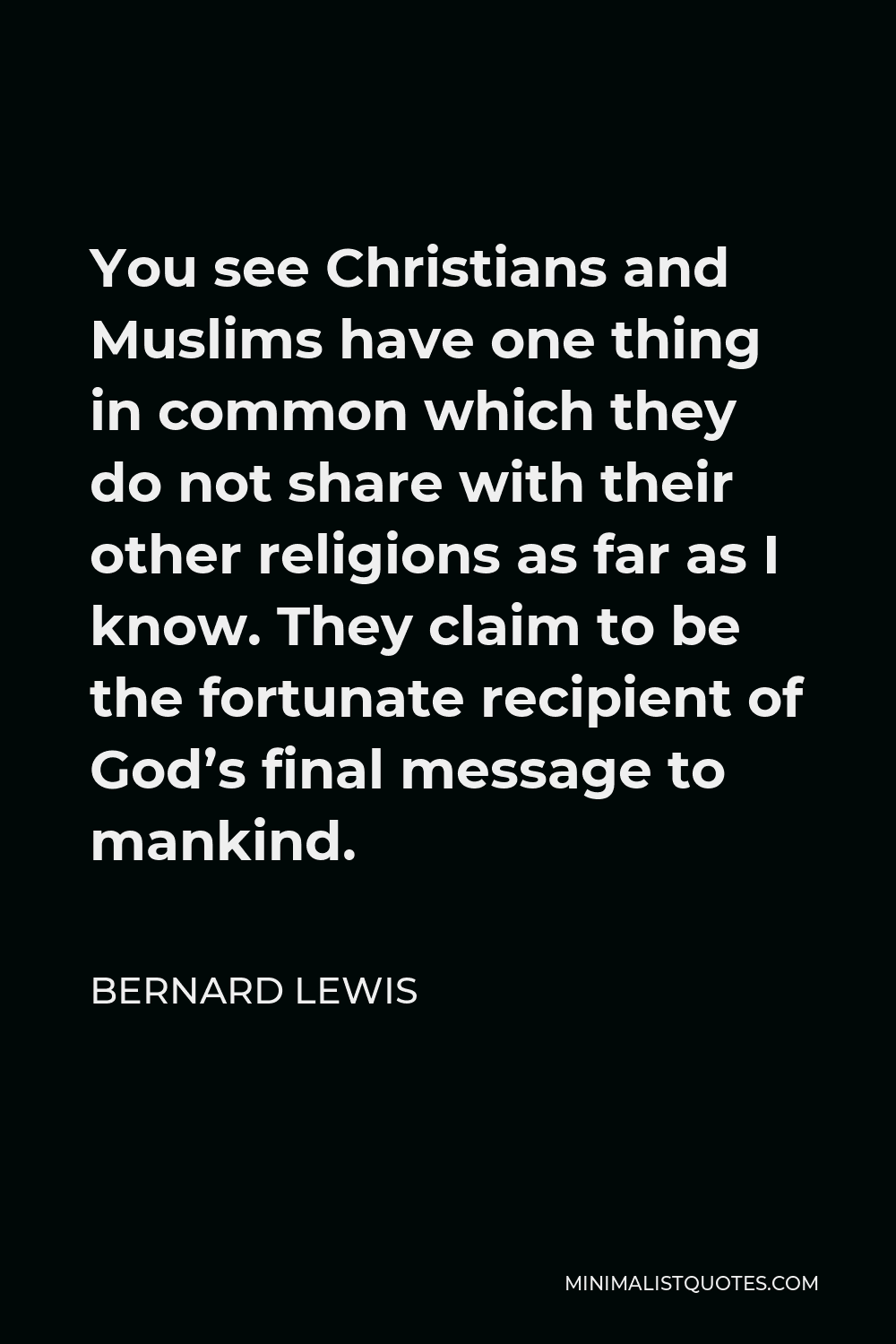
You see Christians and Muslims have one thing in common which they do not share with their other religions as far as I know. They claim to be the fortunate recipient of God’s final message to mankind.
BERNARD LEWIS -





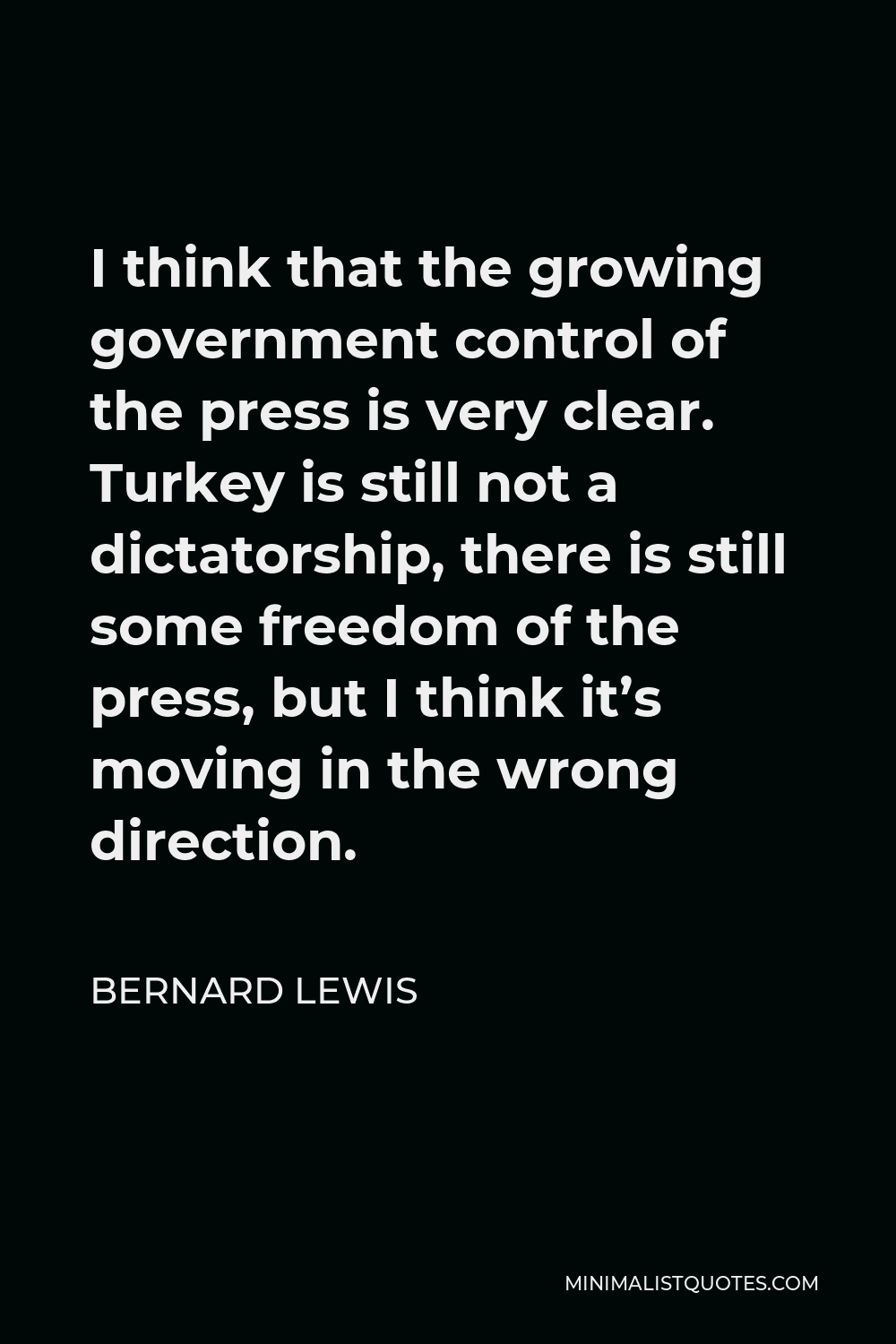
I think that the growing government control of the press is very clear. Turkey is still not a dictatorship, there is still some freedom of the press, but I think it’s moving in the wrong direction.
BERNARD LEWIS -





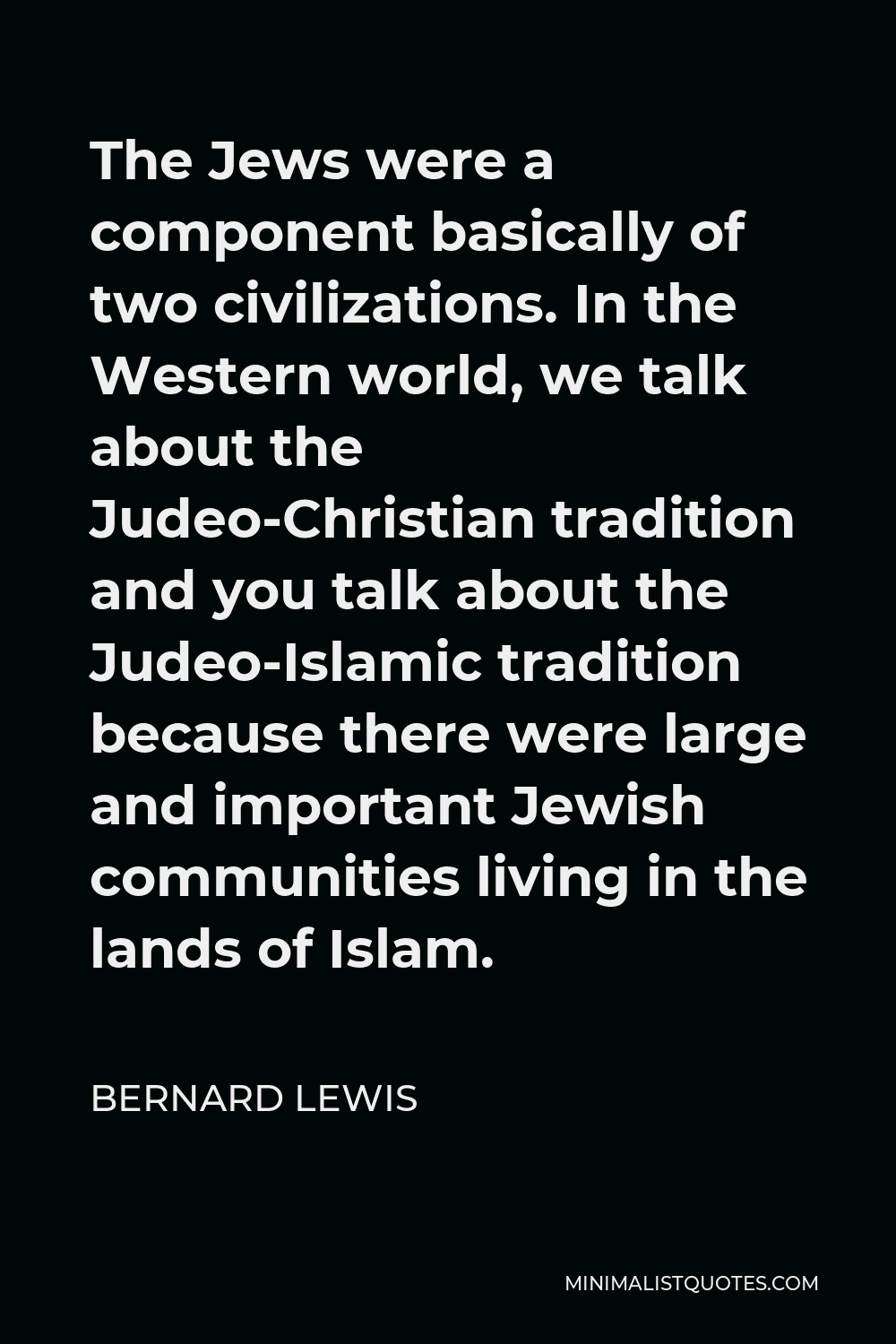
The Jews were a component basically of two civilizations. In the Western world, we talk about the Judeo-Christian tradition and you talk about the Judeo-Islamic tradition because there were large and important Jewish communities living in the lands of Islam.
BERNARD LEWIS -





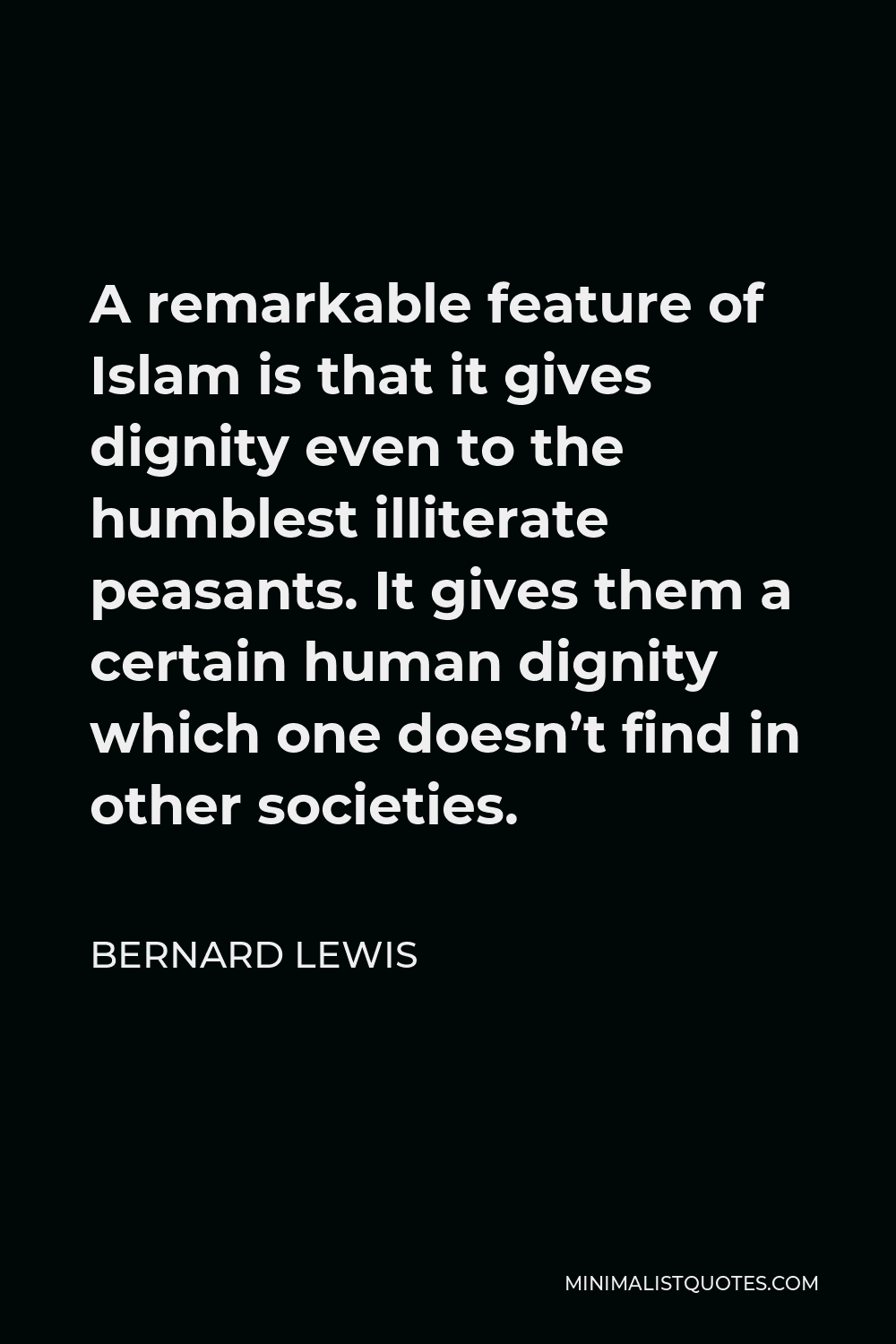
A remarkable feature of Islam is that it gives dignity even to the humblest illiterate peasants. It gives them a certain human dignity which one doesn’t find in other societies.
BERNARD LEWIS -





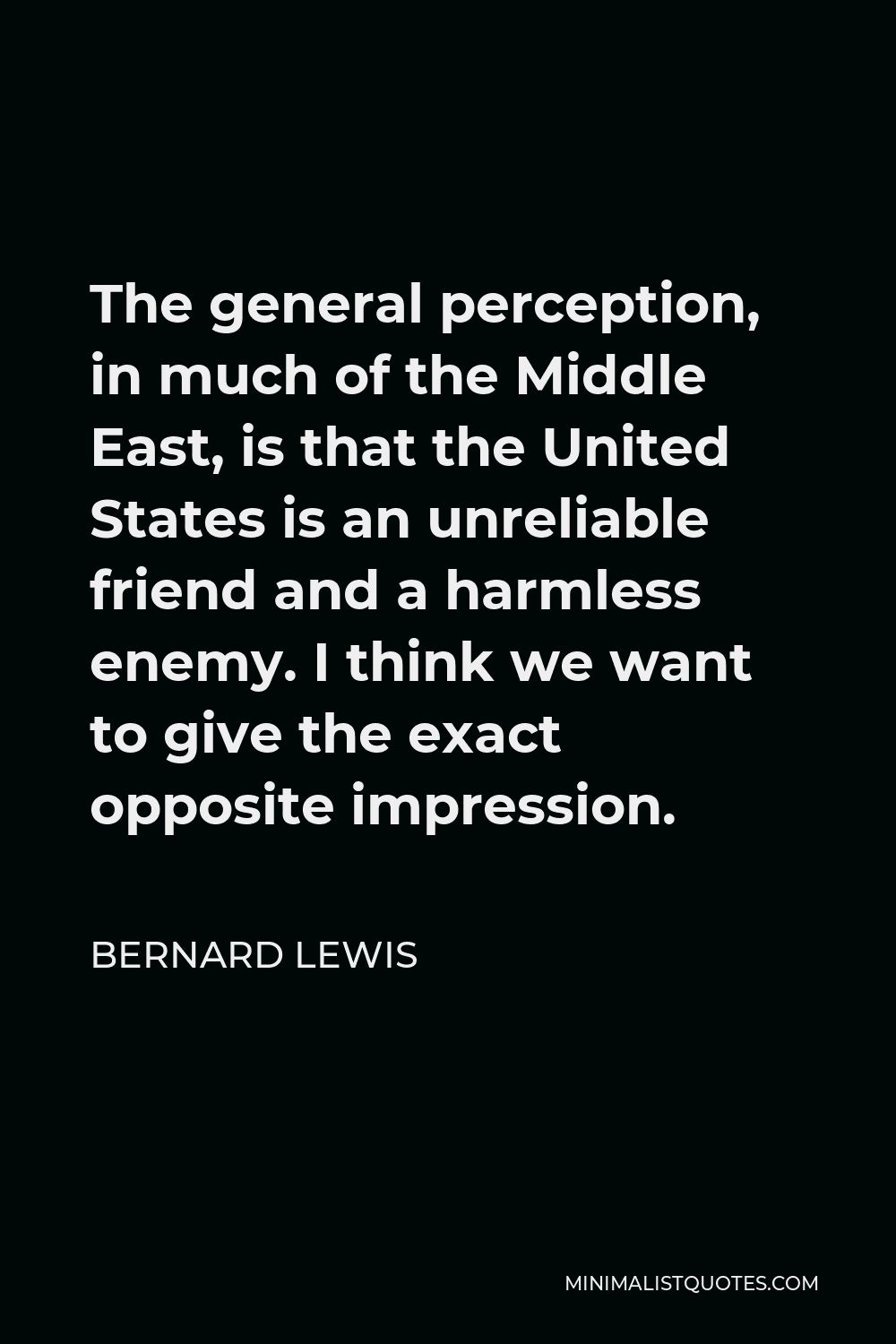
The general perception, in much of the Middle East, is that the United States is an unreliable friend and a harmless enemy. I think we want to give the exact opposite impression.
BERNARD LEWIS
